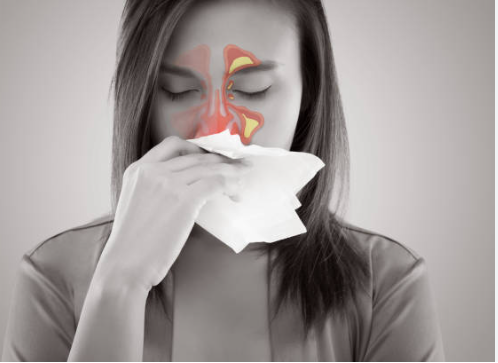Mr Mouli Doddi
The sinus is a thin, slender channel that links the nose to hollow regions in the bones surrounding the nose. They are located between your eyes, behind your cheekbones, and your brows. Some persons have a total of eight sinuses, and others lesser.
Sinus pains are pains that correspond to sinus infections (sinusitis). Sinusitis medically known as rhinosinusitis is a condition where the tissue lining the sinuses is inflamed or swollen due to a fungal or bacterial infection. They produce mucus which maintains the moisture level inside your nose and in turn helps guard against allergies, dust, and pollutants. About one in eight adults is affected by this annually. Talk with a private ENT(Ear, Nose & Throat) consultant in London to get a diagnosis and a treatment plan.
Types of Sinus Infection
There are generally four major types of sinusitis and they are categorized depending on their duration; acute sinusitis (2 to 4 weeks), sub-acute sinusitis (4 to 12 weeks), chronic sinusitis (12 weeks or more), recurrent sinusitis (several times a year).

Causes of Sinus Infection
A virus, bacteria, or fungus that inflames and obstructs the sinuses can result in a sinus infection. Other definite causes include:
- Common cold.
- Nasal polyps
- Allergies to mold, nasal allergies, and seasonal allergies
- Weakened immune system
- A misaligned septum
- Smoking
Infants and young children may be more susceptible to sinusitis if they stay in an environment where there is smoke, spend time in daycares, use pacifiers, or drink from bottles while lying down.
7 Signs of Sinus Infection
Some signs of sinus infection are common in both acute and chronic sinusitis. Get an ENT(Ear, Nose & Throat) specialist online consultation today to know the type of sinus infection you have and get treatment.
- Facial Pain
When you have a sinus infection, it can cause pain in any of your air-filled cavities located above and below your eyes and behind your nose.
Your sinuses may hurt and feel mildly pressured due to swelling and inflammation. This is due to inflammation’s potential to alter mucus’ normal flow from the nose to the back of the throat.
You may feel pain in your forehead, between your eye, either sides of your nose, or your upper jaws and teeth, and this can lead to headaches.

- Fever
Fever is a sign that the body is battling a virus, bacterial, or fungal infection. Fever is a common sign of many illnesses, including sinusitis, but it is not always present.
A fever brought on by this kind of infection normally ranges from 100.4 to 103°F (38 to 39.4°C), which is known as a low-grade fever.
- Cough
Irritation caused by frequent postnasal drip may result in a disturbing cough that lasts for a long time and can get worse when you lie down to sleep or right after you wake up in the morning. This can also make sleeping difficult, as well as your voice becoming very hoarse due to frequent coughing and throat clearing.
The frequency and severity of your cough can be reduced by sleeping on your side or with your head up. If coughing persists, seek an ENT(Ear, Nose & Throat) specialist online consultation.
- Nasal Discharge
Nasal discharge (green or yellow discharge from the nose) may require frequent blowing of your nose when you have a sinus infection. Your infected sinuses are the source of this discharge, which enters your nasal passages.
- Nasal Congestion
Your sinuses and nasal passages swell as a result of the infection. Your swollen sinuses can suppress your ability to breathe through your nose and may cause you to feel blocked in the nose. Your voice may seem hoarse and you might not be able to smell or taste as usual due to nasal congestion.
- Sore Throat
When nasal discharge bypasses your nose and goes straight down your throat, it causes an inconvenient tickling and an itch that later gets worse and in turn, leads to a sore throat.
Mucus can irritate and cause swelling in your throat as it drips if your infection persists for a few weeks, causing a painful sore throat.
- Bad Breath (halitosis)
Your infected sinuses produce mucus that does not only smell bad but also drips down your throat into your mouth. Drinking enough water, frequent mouth washing, and brushing your tongue may help to relieve you.
If your sinus symptoms persist, ask a Private ENT(Ear, Nose & Throat) consultant, in London about the pros and cons of surgery.



